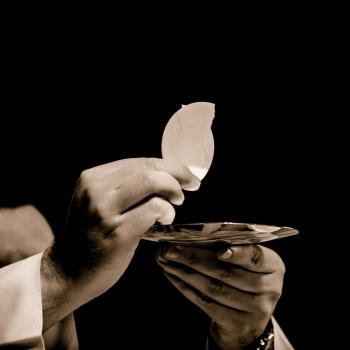 Dictionaries capture the impoverished meaning of the word “sobriety” in modern, American parlance. One on-line dictionary, for example, offers three possible meanings:
Dictionaries capture the impoverished meaning of the word “sobriety” in modern, American parlance. One on-line dictionary, for example, offers three possible meanings:
- The state or quality of being sober.
- Temperance or moderation, especially in the use of alcoholic beverages.
- Seriousness, gravity, or solemnity
Broadly speaking, however, the popular understanding of sobriety often amounts to little more than freedom from the influence of addictive substances (though some AA sites do allude mental health and a balanced life).
So, it is surprising to find Hesychius of Sinai, a hieromonk who lived in the seventh century, offer this definition of the word:
“Sobriety is a guardian of the spirit. It stands on guard day and night at the gates of the heart, to sort out the thoughts that present themselves, to listen to their suggestions and to observe their intrigues. In the first place, control the imagination strictly: it is the only route by which Satan can slip thoughts into the mind to deceive it. Then preserve in your heart a deep silence, an undisturbed tranquility. Next, invoke the help of Jesus unceasingly and humbly. Finally, keep the thought of death alive in your soul. This is the way for that guardian, sobriety, to stop evil thoughts from approaching.” (Philocalia, I)
Understood in this way, true sobriety is a virtue, a state of mind, or a way of being that everyone of us should pursue. Whether we struggle with addiction or not, according to Hesychius it is the requisite “guardian of our souls.”
On that reading then, the preoccupation of our culture, freedom from substance abuse is the first step in practicing sobriety. It is not the end or goal.
Sobriety is roughly equivalent to what others might equate with a mindful or centered approach to life (and I have seen it described that way), but according to Hesychius sobriety is more active than those words usually connote. It is a gatekeeper, a critic, an alarm and, as such, it also nurtures health, well-being, and an inner conversation with God that grows.
This view of sobriety also rests on the assumption that if (as the saying goes), “nature abhors a vacuum,” then nature deeply abhors a spiritual vacuum. Unlike the unchecked and unfettered world in which we live, the ancients really believed, “garbage in, garbage out.” The “old fashioned” and solemn term, “sobriety” is not as easily hijacked by our culture as the notion of being “centered,” nor is it as easily emptied of its meaning, if we absorb the wisdom Heyschius offers. It is grounded in the notion that sobriety is not an end in itself, but is a virtue cultivated in the name of responding to the ultimate purpose of human life: to walk with God and to delight in God forever.












